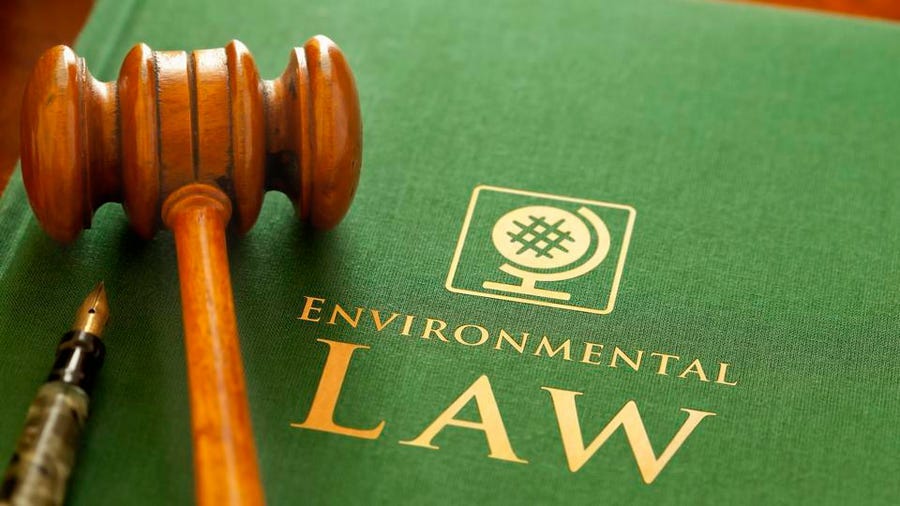Thinking about a career in climate?
What to consider before making the leap into greener pastures
New year, new you, right? And why not make that new you, a new career in the sustainability space? Afterall, there’s been a surge in ESG and environmental/sustainability jobs. Open LinkedIn and the first handful of jobs it’s throwing at me includes a ‘climate copywriter’ for a massive American bank, a ‘sustainability strategist’ for a pension provider and ‘sustainability communication manager’ for a fast-food chain. This is both a good thing and a bad thing (but mainly a good thing).
It’s a good thing because:
Companies are realising that this global warming thing isn’t going anywhere
There’s an understanding that customers - especially the younger generation - care deeply about the climate, and that it would behoove businesses to listen to them
There’s increased scrutiny and they’re being cautious about getting it right by hiring the right people
A bad thing
There’s potential for a green career to be completely derailed by lack of support in the company.
The International Labor Organisation predicts that more than 24 million green jobs could be created globally by 2030, and indeed, it’s seen as one of the benefits of climate action – that new needs boost new skills which in turn boost more employment. A recent article in Bloomberg found that: “A 2022 LinkedIn survey found that listings for green jobs have grown at an annual pace of 8% since 2015, while green talent grew only 6% each year over the same period.“
I’ve seen a staggering number of schoolfriends and university pals who I’ve lost touch with over the years transform their LinkedIn job titles from things like ‘lawyer’ to ‘sustainability lawyer’, and ‘trader’ to ‘ESG trader’.
Climate careers may be seen as a young person’s game
This is no bad thing, but in my own experience, climate change is still seen as a 'young person’s thing’, so roles are handed out to people because of age and general interest rather than a deep skillset in climate. This happened when social media became a ‘thing’, and dull jokes about ‘interns running the twitter account’ spread like wildfire.
Ambition and passion are probably as good a thing as reading a few weighty coursebooks, but the critical issue is that most climate action requires quite a deep understanding of science and the issue at hand. To communicate emissions for example, it’s vital that the person communication ‘gets’ what decarbonisation means, and how it (as I read in a recent press release) can’t be ‘ended by 2050’. Note: Ending decarbonisation by 2050 should not be an aspiration.
Invest in training
So, climate jobs are on the rise, but so too should investment in training and education. If a business wants to hire young talent to be their sustainability function, then companies should invest in part-time degrees or evening course. And of course, there’s the question around what ‘green talent’ even means. Does John, who studied history, count as green talent as he’s worked in the sector for a decade? Does someone who is a biologist by trade but reads a lot of books about icebergs count?
Afterall, you’d never hire an engineer or a doctor if they didn’t have an engineering or medical degree. Why should it be any difference in the climate space? Whatever you feel about it, the truth of it is it is different. Companies know they need to hire and hire fast, and if you’re passionate and keen to learn more about the sector it’s a great start. An engaged workforce keen to implement change and communicate it will likely do more than simply hiring someone who has a module about the ozone layer from 1976.
However, there are some things to consider if you’re thinking of taking a job in the climate sphere.
Things to consider:
The company’s intentions. There’s one thing leaping into a new role with guns a-blazing, and another to find out they literally only hired you for damage control. You’re asked to spend your days drawing pictures of green objects and once a year organise a gardening jamboree because it ‘sounds sustainable.’ Find out if there’s anyone already in the sustainability team, and then check out their credentials. Are they in it because they care deeply about the environment or because they’re worried regulators will come knocking?
Budget. It can take significant budget to roll out green initiatives, from changing pension providers to refitting an office. There’s no point jumping two feet into a ‘greener’ job if senior leaders won’t support the plans you know are needed to transform your company into a bastion of sustainability. In interviews, check how much autonomy you’ll have to actually implement the green initiatives in the JD.
Will you be pushing greenwashed material out into the world? If you really care about the planet, it’s probably best to avoid working in the sector at any cost. One friend took a job at an oil and gas company in sustainability communications. They’ve put out a significant amount of communications citing how responsible and green the business is, even though they know it’s not. Check how you feel ethically to work in a role where you’re maybe going to be supporting something you don’t totally believe in.
Entering the sustainability sector is generally a good thing. The more people in the space who care deeply about the planet, the more leadership and shareholders will have to listen. And customers and the general public are demanding businesses pay sustainability attention too. If you’re a leader hiring someone in the space, think about how much scope the new hire will have, and how you can support that. This will prevent disillusionment and simply pushing the status quo. Going to as many events as possible is critical – attend conferences, hear people speak, read all the white papers that are published. This is a new sector and there’s lots of opportunity to learn.

Where to find green jobs
Green Jobs is a good resource for specific, more technical roles, for example waste management expert.
The Guardian’s job hub now lets you search for climate-specific roles.
Climate17 is a purpose-driven recruitment firm.
But mostly your best bet is LinkedIn. Search for climate and sustainability keywords.
Ben Weston frequently posts roles that feature sustainability as does Richard Hughes.
Resources to engage with ahead of a job interview or starting a new sustainability role
Read and listen to everything you can get your hands on.
Associated Press: Climate - Climate hub for the independent global news service. They also have carbon neutrality, solar power and environment hubs.
Bloomberg Green --Climate news with a corporate/business slant, covering green finance, zero-emission tech and science.
CNN: Climate - Packed with explainers about why the weather is doing what it’s doing, in addition to tornado, wildfire and hurricane trackers.
The Guardian: Climate News - Home to some of the world’s top environmental reporting.
L.A. Times: Climate & Environment - Boiling Point newsletter on climate change is particularly worth subscribing too.








